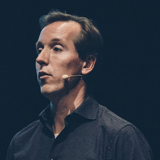Log in or create a free Rosenverse account to watch this video.
Log in Create free account100s of community videos are available to free members. Conference talks are generally available to Gold members.
This video is featured in the AI and UX playlist.
Summary
AI adoption is rapidly accelerating in the insights space, and researchers are rushing to explore the possibilities and pitfalls it presents. Without a doubt, it will change the nature of our work, but where do we stand now? Our panelists will examine passionate defenses for the value of AI, offer reasoned critiques, discuss practical applications, and discuss how we can collectively move forward in an ethical and human-centered manner. Attend all of our Advancing Research community workshops Each free virtual workshop is made up of panelists who will share short provocations on engaging ideas to discuss as a group, as well as a leader in our field to moderate. If you're looking for discussions that challenge the status quo and can truly advance research, look no further than our workshop series. (P.S. We’ll be drawing most of our Advancing Research 2025 conference speakers from those who present at upcoming workshops—so tune in for a sneak peek of what's to come from #AR2025!) July 24, 4-5pm EDT Watch Video Theme 1: Democratization Working with it, not against August 7, 11am-12pm EDT Watch Video Theme 2: Collaboration Learning from market research, data science, customer experience, and more August 21, 4-5pm EDT Watch Video Theme 3: Communication Innovative techniques for making your voice heard September 4, 11am-12pm EDT Watch Video Theme 4: Methods Expanding the UXR toolkit beyond interviews October 2, 11am-12pm EDT Watch Video Theme 6: Junctures for UXR Possible futures and the critical decisions to move us forward October 16, 4-5pm EDT Watch Video Theme 7: Open Call Propose ideas that don’t match our other workshops’ themes
Key Insights
-
•
AI is essential for modeling complex natural systems but tends to generalize towards the center, ignoring critical edge cases where innovation happens.
-
•
Bias in AI is often unintentional but reflects dominant cultural and power structures, disproportionately harming marginalized groups.
-
•
Addressing bias requires interdisciplinary collaboration and including voices from impacted communities, especially those historically excluded.
-
•
There is a scarcity of positive, concrete examples of AI used ethically and effectively, contributing to public fear and skepticism.
-
•
Ethics and responsibility must be central in AI design, guided by questions about who benefits, who is harmed, and who participates in the process.
-
•
AI’s promise in scientific research lies in enabling new types of comprehensive analysis and modeling previously impossible for humans alone.
-
•
Inclusivity efforts in AI can sometimes perpetuate existing power imbalances rather than eliminate them if not critically examined.
-
•
Bias assessment involves self-reflection on positionality, rigorous questioning, and iterative validation with diverse teams.
-
•
Human-to-human interaction remains essential to complement AI tools and counterbalance their limitations and biases.
-
•
Balancing AI’s environmental costs with its potential to solve urgent problems like climate change is a complex but critical discussion.
Notable Quotes
"AI is both absolutely necessary and completely terrifying for science."
"The greatest scientific breakthroughs tend to come from edge cases, which AI tends to ignore."
"AI reflects dominant hegemonic views, creating virtual worlds where counter views do not exist."
"Who was involved in the process? Who benefited? Who was harmed? These are essential questions in AI design."
"Nothing is inherently better because it was produced by human intention or machine learning; interrogate the goal first."
"There is always going to be a power gap in inclusiveness efforts unless we critically question who is missing."
"AI allows us to explore multiple imaginaries and possibilities, expanding how we question and understand the world."
"Bias is constantly evolving; awareness requires trusted human relationships, not just technology validation."
"Sometimes the most ethical and just path for humans is also the most effective for preserving natural systems."
"It's all about balance: being aware of AI’s issues while remaining open to its incredible opportunities."
Or choose a question:
















More Videos

"Accessibility isn’t a checkbox you run automated tests for; you must involve people with disabilities to benchmark success."
Sam ProulxOnline Shopping: Designing an Accessible Experience
June 7, 2023

"Transparency is one of our key values, so everyone in the studio was involved in building and maintaining the evaluation system."
Ignacio MartinezFair and Effective Designer Evaluation
September 25, 2024

"Transformation is new ways of thinking and eventually doing; we won’t have all the answers at the start and that’s okay."
Sarah Kinkade Mariana Ortiz-ReyesDesign Management Models in the Face of Transformation
June 8, 2022

"The Shakers patented clever affordances like chair buttons that let you rock without damaging wooden floors."
Daniel GloydWarming the User Experience: Lessons from America's first and most radical human-centered designers
May 9, 2024

"We’re moving from theory of change to theory of service: starting with what people actually need before creating anything."
Patrick BoehlerFishing for Real Needs: Reimagining Journalism Needs with AI
June 10, 2025

"How do you build in the context of what you specifically need rather than having tools drive the research process? That’s the future."
Andy Barraclough Betsy NelsonFrom Costly Complexity to Efficient Insights: Why UX Teams Are Switching To Voxpopme
September 23, 2024

"We should reconsider the savior complex designers sometimes have — we’re not all powerful."
Alexandra SchmidtWhy Ethics Can't Save Tech
November 18, 2022

"The Etsy postmortem is not about blame, it’s about open-ended discovery and learning to do better next time."
Louis RosenfeldDiscussion: What Operations can teach DesignOps
November 6, 2017

"The product is the reflection of how well teams communicate. Without clear communication, success is impossible."
Mitchell BernsteinOrganizing Chaos: How IBM is Defining Design Systems with Sketch for an Ever-Changing AI Landscape
September 29, 2021
Latest Books All books
Dig deeper with the Rosenbot
How can visualization techniques demonstrate the measurable impact of behind-the-scenes service design work?
What role does visualizing funding distributions (like 'sausage' diagrams) play in improving portfolio management?
How do champions at different organizational levels impact the success of service design initiatives?



















